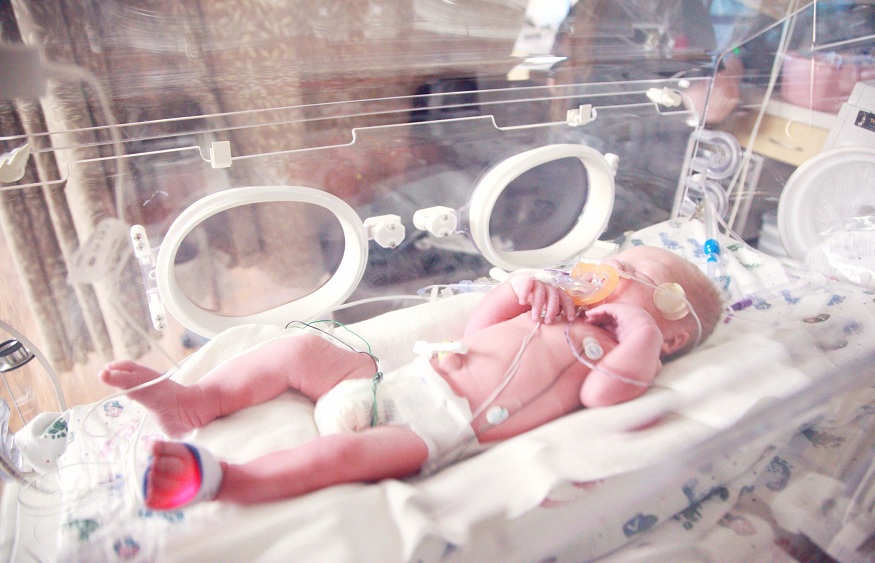Bringing your newborn home is an indescribable experience. However, it can also be tiring and challenging during the first few months. Caring for your newborn is a rewarding yet demanding journey that requires patience and dedication.
In this article, we have compiled a list of 5 essential neonatal care tips for new parents to help them ensure the well-being of their baby while easing the transition into parenthood.
1. Feeding
It’s essential for mothers to feed their babies timely. Newborns should be nursed every 2 to 3 hours, totaling 8-12 hours daily. For the first six months, breastfeeding is crucial for infants, as it provides essential nutrients and antibodies for babies’ growth and immune system, ensuring their overall well-being. Furthermore, breastfeeding aids the mother’s postpartum recovery and strengthens the bond with her newborn.
Mothers can opt for doctor-recommended formula if breastfeeding is not an option, with each feeding starting from 30ml for newborns. It is advisable to consult a lactation consultant to establish a comfortable feeding routine.
2. Sleeping
Proper sleep is one of the essential aspects of neonatal care. Most newborns sleep for approximately 18 hours a day during the first two months of their lives. They typically sleep in shorter intervals of 2 to 4 hours and wake up when hungry or need a diaper change. To ensure the well-being and safety of their babies during sleep, mothers can consider the following tips:
- Most newborns rely on feeding as their main driving force, and during the first two months of life, mothers may need to wake and feed their infants approximately every two hours.
- Mothers should rotate their babies’ head positions while sleeping to prevent flat spots from developing on their heads.
- Always place babies on their backs when putting them to sleep to avoid suffocation.
- When putting babies to sleep, ensure their cribs have a firm mattress and are free of loose bedding or stuffed animals.
- Mothers should try to nap with their babies to prevent fatigue and feel refreshed.
It’s important to remember that every baby is unique, including their sleep patterns. Therefore, there’s no need to worry if your baby doesn’t adhere to the ideal newborn sleep routine.
3. Handling and Safety
Another essential aspect of neonatal care is handling the baby carefully. There are some safety tips mothers should consider while handing their newborns:
- Mothers should support their babies’ necks and heads with one hand while holding them.
- Avoid shaking babies vigorously, as their internal organs are delicate and can be damaged by such actions.
- Do not throw the baby into the air since it can be dangerous.
- Always disinfect or wash your hands before handling babies, as their immune systems are still developing and are susceptible to infections.
- When taking babies out, ensure they are securely fastened in a stroller, car seat, or baby carrier for their safety.
- Encourage daily tummy time for babies to strengthen their neck and back muscles. Additionally, this activity enhances their vision as they learn to look up and sideways.
- Babies explore their surroundings by putting objects in their mouths. To reduce the risk of choking, keep small items away from them.
4. Cleaning and Bathing
Bathing a newborn is a delicate task that ensures cleanliness and offers additional benefits. It can provide a valuable bonding experience for parents and babies, often having a calming effect that may even help in inducing sleep.
Some tips and best practices for cleaning and bathing infants include:
- Create a bathing routine by starting to bathe your baby 2-3 times a week after the cord stump has dried and fallen off.
- Consider bathing your baby before bedtime to promote better sleep.
- Ensure all necessary baby and diapering supplies are ready and within easy reach.
- Use a small tub with lukewarm water and mild baby soap or body wash to bathe your baby.
- While bathing, keep the baby’s neck and head above the water.
- Use a washcloth or cotton ball to gently clean your baby’s genitals, umbilical cord, scalp, hair, neck, face, and nose.
- Afterward, dry their body, apply lotion, and dress them in fresh clothes and a clean diaper.
5. Follow a Vaccination Schedule
Mothers should follow a vaccination schedule for their babies to protect them from severe or potentially fatal illnesses. Consult a pediatrician to create a plan and ensure your infant receives all recommended vaccines at the proper times.
Babies should receive the following vaccines between the ages of 1 and 2 months:
- A DTaP vaccine for diphtheria, tetanus, and whooping cough (pertussis)
- Hib vaccine guards against Haemophilus influenza type b (Hib) disease.
- The Hepatitis B vaccine protects against hepatitis B, which can lead to liver damage and cancer.
- The pneumococcal conjugate vaccine protects against pneumococcal disease-causing bacteria.
- The Rotavirus vaccine prevents rotavirus disease
- Polio vaccine to protect against polio, a disabling and life-threatening disease caused by poliovirus.
Taking care of your newborn can be both rewarding and demanding. These essential neonatal care tips will guide new parents through this journey.





